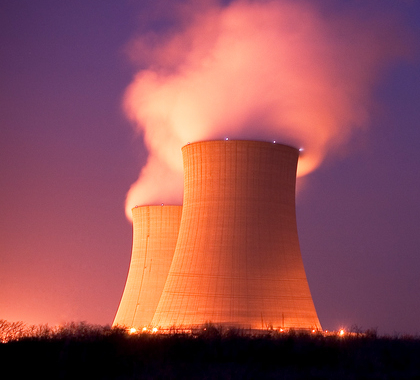In a recent article titled “The New Battle Plan for the Planet’s Climate Crisis,” Bill McKibben, a radical climate activist and founder of 350.org, argued Earth is rapidly warming and immediate action must be taken to reduce human-caused greenhouse-gas emissions. To do so, McKibben advocates a massive build-out of wind and solar power, but he never mentions one of the most obvious and efficient energy sources available: nuclear.
The omission is no mistake; McKibben and his environmental pals have made a concerted effort to reject nuclear energy, even though it’s the only way to immediately reduce carbon-dioxide emissions.
Despite massive taxpayer subsidies to wind and solar-power industries, these two sources, which McKibben suggests is the future of U.S. energy, account for just 2.2 percent (combined) of the total energy used in the country. Making matters worse, they are incredibly expensive. It’s mostly for this reason the “Renewable Now” slogan is nothing more than that. It’s certainly not a solution.
Energy and climate realists must hold alarmists like McKibben to their own standards. If the alarmists want to be taken seriously, they must nuke up or shut up.
Countries that have tried to follow McKibben’s advice by aggressively subsidizing wind and solar power have lived to regret it. In Germany, wind and solar subsidies are the reason Germans now pay three times more for their electricity than the average American. To add insult to injury, German greenhouse-gas emissions have actually increased since 2009, because Germany decided to begin shuttering its nuclear power plants after the Fukushima accident.
Wind and solar only generate electricity when the wind is blowing or the sun is shining, and this is why Germany only obtains a miniscule 3.3 percent of its total energy from wind and solar. As a result, Germany must burn more coal to generate electricity, which is why the country now owns one of the most carbon-intensive energy grids in all of Europe.
Nuclear energy has several drawbacks. It creates dangerous nuclear waste that must be safely stored away from humans, and generating electricity from nuclear power costs more than generating electricity from coal or natural gas. But the cost of nuclear energy is still far below the cost of wind and solar power.
According to an analysis by the Ontario, Canada Society of Professional Engineers, generating electricity from wind is twice as expensive as from coal or natural gas, and from solar is six times more expensive than retail electricity rates. By comparison, nuclear energy produces power for about 1.5 times the retail price, and nuclear power is reliable and predictable.
In addition to higher costs, the lack of reliability of wind and solar energy makes it hard for them to co-exist with nuclear energy. Because wind and solar require backup sources of generation when the wind isn’t blowing and sun isn’t shining and nuclear power plants are unable to quickly ramp up or ramp down generation, wind and solar are often backed up by natural gas. This means adding wind and solar at the expense of nuclear results in more carbon dioxide entering the atmosphere.
Congress and President Donald Trump can restore energy sanity by removing barriers to nuclear power, establishing a permanent disposal site at Yucca Mountain, and letting the free market decide what the energy sources of the future will be.
[Originally Published at Detroit News]





